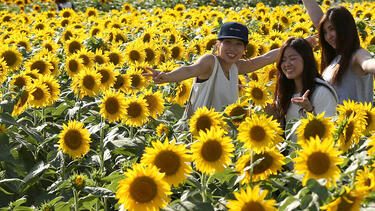Three Questions: Prof. Gal Zauberman on the Psychology of Taking Vacation Photos
To snap or not to snap? By the end of the summer, you’ve probably collected more vacation photos than grains of sand in your shoes. In his research, Yale SOM’s Gal Zauberman has explored how taking photos affects an experience. We asked him whether documenting our own sandy adventures can actually improve them.

Buddhika Weerasinghe/Getty Images
What is your advice about taking photos when you travel? Does snapping pictures distract you from actually experiencing your vacation?
One of our core findings is that engaging in photo-taking during a positive experience increases your engagement with your surroundings. That engagement leads you to more positive experiences.
We have a study that’s one of my favorites: We rented a double-decker bus, hired a professional tour guide, and took people on tours of Philadelphia. We ran these eight times a day, every hour. Half the time people had the ability to use cameras, half they did not, and we checked at the end how much they enjoyed it, would they recommend this experience, and so on. What we see is that having a camera makes you more engaged, and that engagement leads you to have a more pleasurable experience.
Think of going out and deciding to go on a hike and take photos. You need to scan your environment to know what is photo-worthy. Then, once you find something that you think is worth taking a photo of, you need to think about how exactly that photo should look. It’s a series of visual engagements with your surroundings, and that makes you more focused and more engaged with your surroundings.
In another paper that we published, we looked at what photo-taking during an experience will do to your memory later on of that experience. Will you remember worse or better?
I’m very fond of controlled field studies. So we took participants to an archeology museum, to a particular gallery so we knew what they would see, we told them which order to go, but we also created an audio guide in which they needed to wear headphones. We knew exactly what they saw and what they heard at any particular time. Half the people were asked to take photos, and half were doing it without taking photos. Then we gave them a test in which they needed to recognize objects they’d seen and identify facts they’d heard to be either correct or incorrect. And generally what we find is that photo-taking increases your visual memory and decreases your memory for what you heard. So it’s not that you remember everything better; you just remember what you saw better.
Does sharing photos on social media make an experience more enjoyable?
Our research shows that when you take photos with the intention of sharing them, it actually reduces your enjoyment compared to taking photos for yourself. So what I do tell people is, as you’re taking photos, don’t take that photo with the intention to share with your friends. Take photos that you think are interesting, that capture something.
Thinking of others as you’re having the experience creates what we call heightened self-presentational concerns. It makes you self-conscious: Is my experience good enough? Is what I’m eating fascinating enough? Will my life seem wonderful compared to my friends? So you’re focusing more on that and then it diminishes your own experience. I don’t think of sharing at all during my hike. Once I see the set of photos I can say, “Oh, that will be something worth sharing.”
We have a set of data where we ask people to go and take photos during their Christmas break with the intention to either share with others or take it for themselves. When they take photos to share with others, they tend to be more posed versus authentic. They display more of what we call event-relevant material. They tend to have more Christmas-like things—more trees, more stockings, more gifts. If it’s summer at the beach, it will be much more waves and ice cream. If you come to visit Yale, it will be the iconic Yale elements, not what you connected to potentially on an individual level.
Does the research say anything about what to do with all those photos so they’re actually useful?
There are more photos being taken every day than were taken through the first hundred years of cameras. We can come back from a weekend with 3,000 photos, and my parents did not have that over their entire life. My parents had a photo from their wedding, a photo from graduation, a few photos of working outside of their home, but they didn’t have a photo of going to lunch with a colleague. That is not something you document. So now your documentation for you and for your children, your grandchildren, and your great-grandchildren totally changes.
How does that accumulation of photographing almost every aspect of your life make you remember your life? What we are focusing on now is what we call the psychology of curation—how people engage in curating their photos and what it means for them as they’re moving forward. Sometime our goals during curation will not match what we think we want. My parents might’ve thought that the best thing for me is to see a posed photo with family at the wedding. Actually the most important thing for me was that my parents worked on the farm and were lifting boxes. That is a lot more authentic. It’s a lot more reflective of who they are. My mother and my father sitting drinking tea outside is much more impactful than, again, a posed picture. Because it tells a story. And the authentic moments tell much better stories than the posed ones.